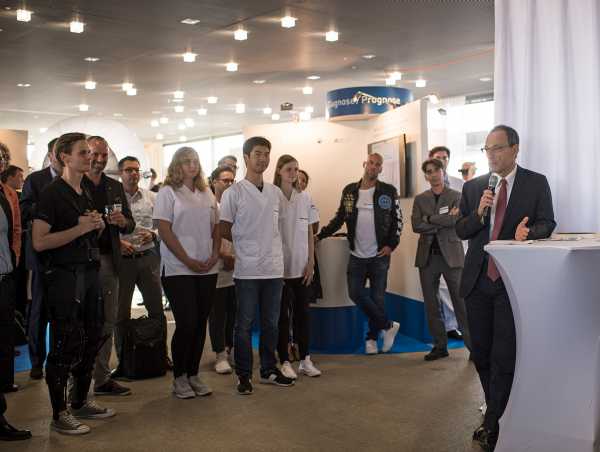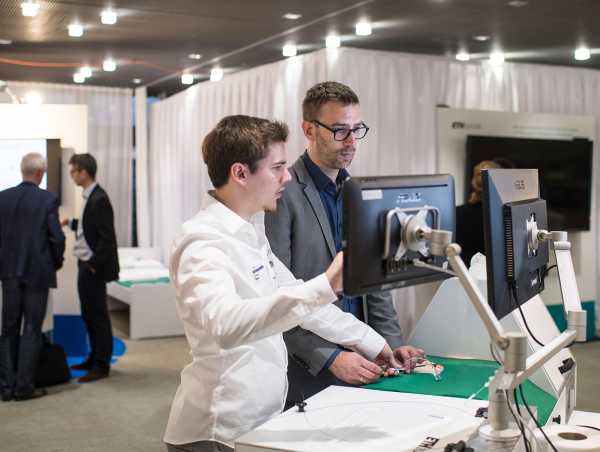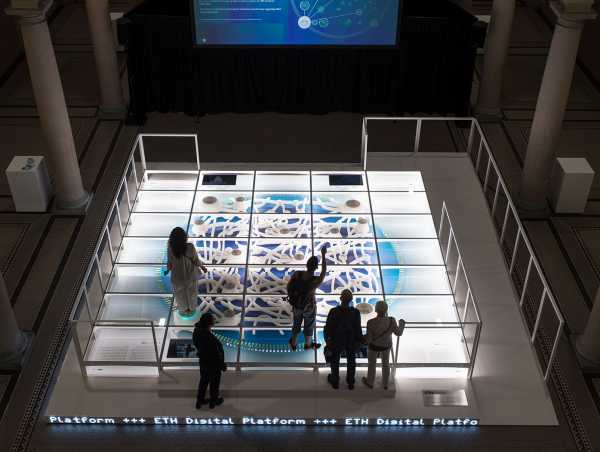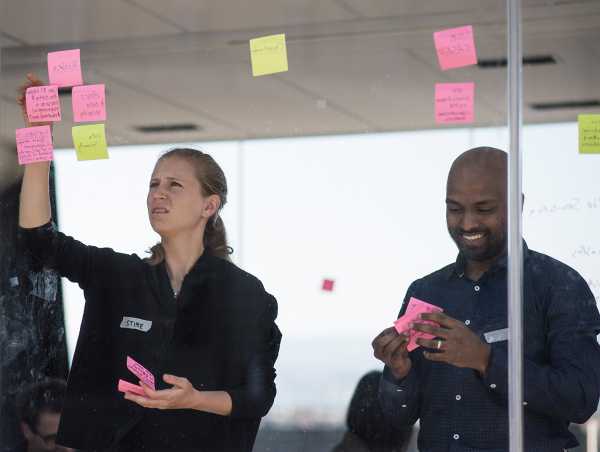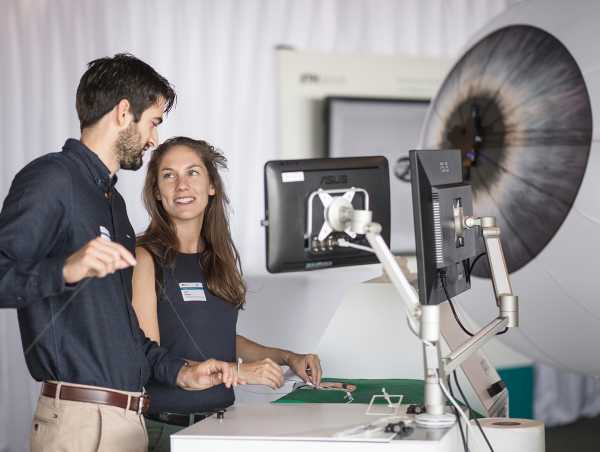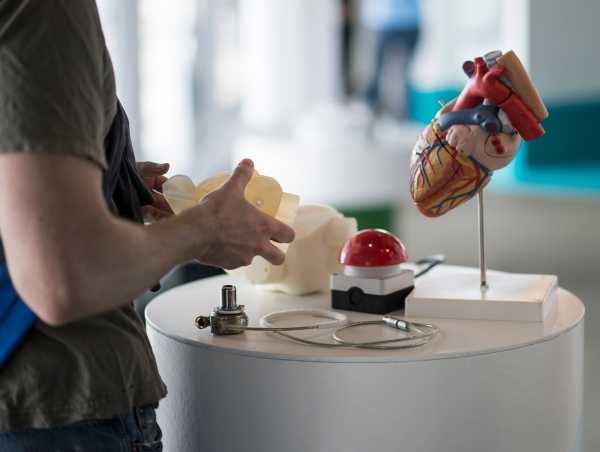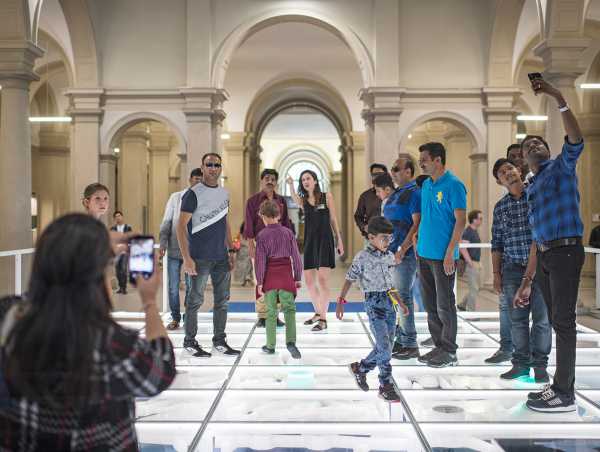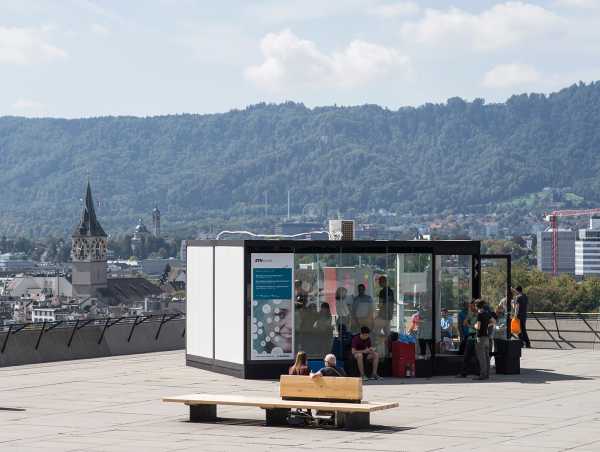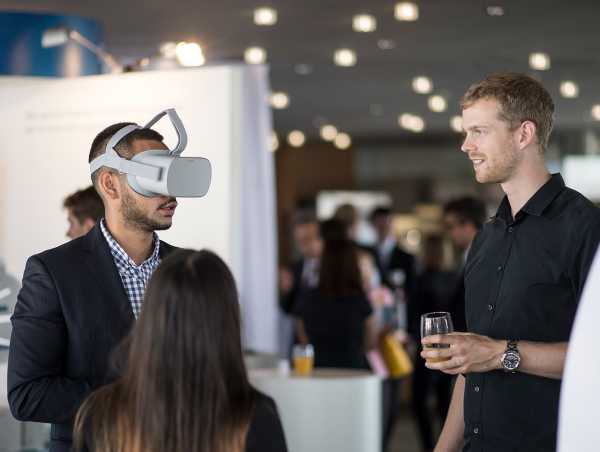Medicine from data and technology
How will digitalisation change medicine and healthcare? At ETH Zurich’s Digital Health event last weekend, more than 150 guests got an exclusive insight into new technologies and had the chance to discuss the opportunities and risks with experts.
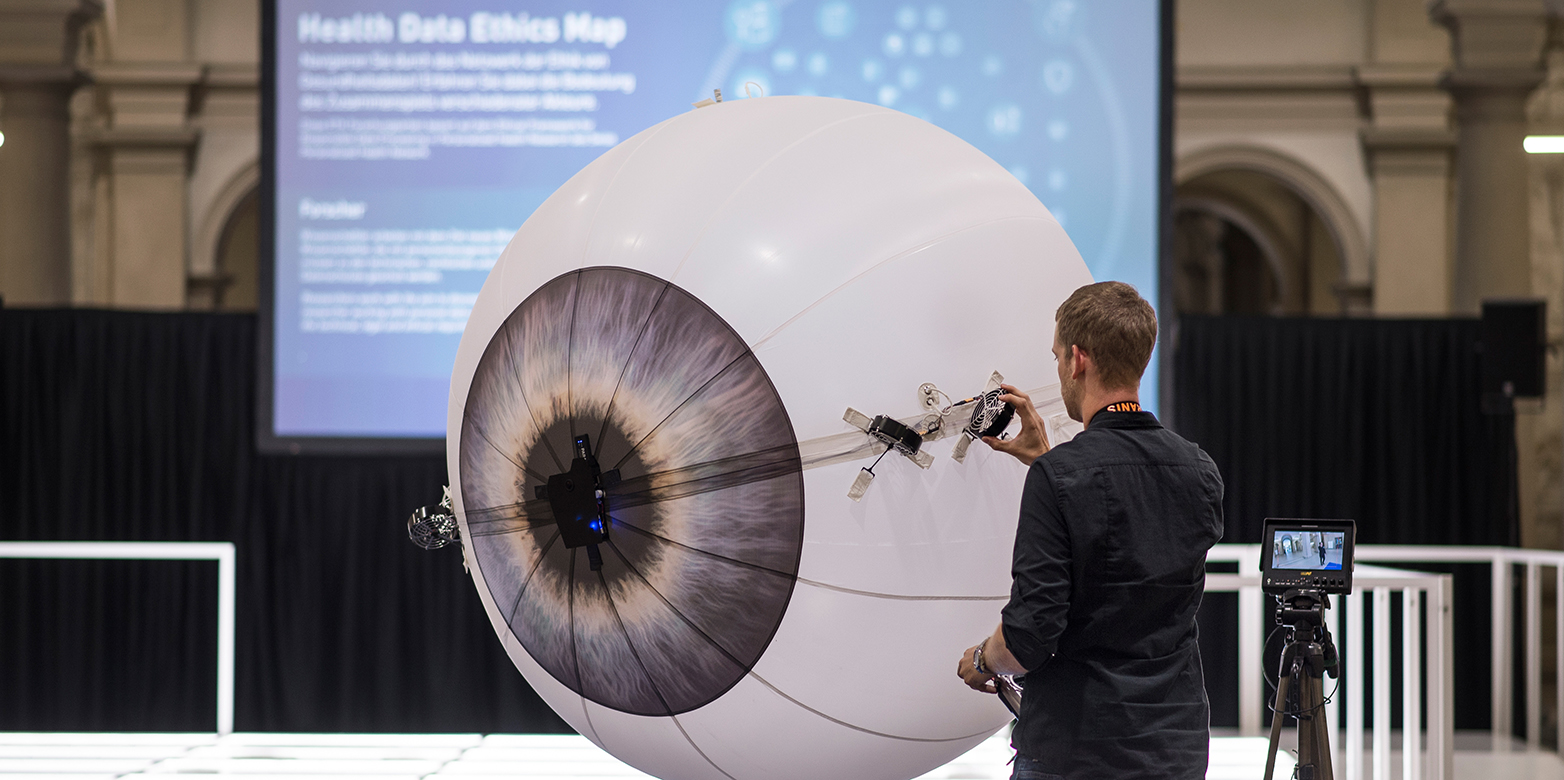
Digitalisation has long been a feature in the world of medicine. At ETH Zurich’s Digital Health event last Friday and Saturday, more than a hundred guests discovered what this means for diagnosis, therapy and healthcare. Attended by members of the public and professionals from the worlds of science, politics, healthcare and industry, the event offered guests an opportunity to exchange ideas and talk with experts and medical students in a series of debates.
Discovering the medicine of the future
An interactive exhibition in the Dozentenfoyer showed the many ways in which data and technology can be used to benefit our health. ETH Zurich researchers, spin-offs and industry partners gave an insight into what scientific research can offer the world of medicine, including innovative sensors that can be placed on the skin to deliver biomedical data in real time. Visitors had the chance to try out specially designed computer games for movement therapy and learned more about the use of exoskeletons to help people with reduced mobility. Also on display were technologies to assist in training doctors, including a heart operation simulation and a virtual autopsy. Drones to transport medication and tiny computers for use in eye surgery highlighted the potential for robotics in the field of medicine.
On their way to the exhibition, visitors also got the chance to try out a fun and interactive digital platform in the ground-floor main hall: by stepping on the large, transparent surface, they found out more about the complex interrelationships in modern medicine.
Natural sciences for doctors
“Today, around one-third of all ETH researchers are working directly or indirectly on issues related to medicine,” said Lino Guzzella, President of ETH Zurich, at the opening on Friday, highlighting the close relationship between the natural and computer sciences and medicine and healthcare. Last autumn, the University launched a Bachelor in Human Medicine for the very first time. According to Guzzella, the course is a logical progression of ETH’s existing activities: “If we look beyond the training and practice of the medical profession, then ETH has been active in areas related to medicine, such as pharmaceuticals, for more than 160 years.” He went on to add that many medical breakthroughs were only made possible thanks to the life and engineering sciences.
Impressions
The expert debates took place on both days under the ETH Zurich dome. Topics ranged from how doctors of the future might use artificial intelligence and biosensors to the responsible use of technology and data. From these discussions, it became clear that patients and healthy people feel differently about the technological developments: while healthy people are most concerned about the misuse of their data, patients primarily see opportunities. “We have to be better at highlighting the advantages,” said Gregor Zünd, President of the Hospital Executive Board at University Hospital Zurich. Like many other experts, he also believes that digitalisation offers many opportunities for better, more personalised medical care.
Data for more personalised treatment
To develop artificial hearts that adapt to any possible situation, researchers would need access to extensive data on how the heartbeat changes when walking, running or at rest. Data could also help to optimise the treatment of people with allergies by showing how they react to a specific combination of temperature and pollen.
Parallel to the event in the main building, ETH students were also investigating various topics around the future of healthcare, discussing their ideas with experts in the InCube on the Polyterrasse. “We want to offer the students’ view,” explained Moritz Mussgnug from the Student Project House, which along with the ETH Entrepreneur Club was one of the founders of the Student Edition workshops. The students also had a booth at the exhibition, so that they could share their views and ideas with visitors.
InCube 2018
The Digital Health event was just the beginning for the ETH Entrepreneur Club’s glass cube. The real fun begins on 21 September 2018, when teams of five students will live for four days in five glass cubes in five different locations. Each team will be presented with a challenge, which they will work on over the four days with the help of experts. An expert jury will announce the winning team at the end of the challenge.

